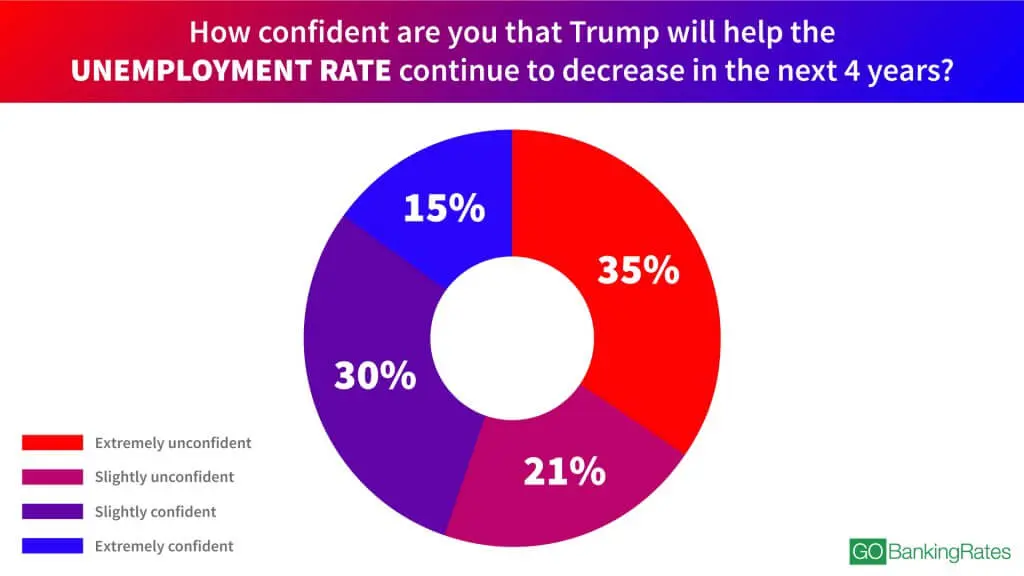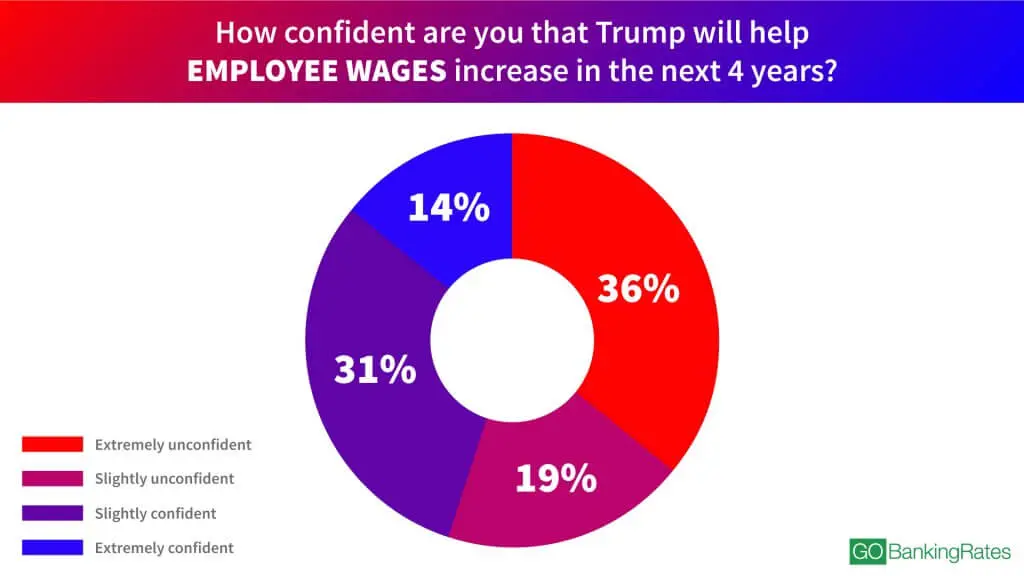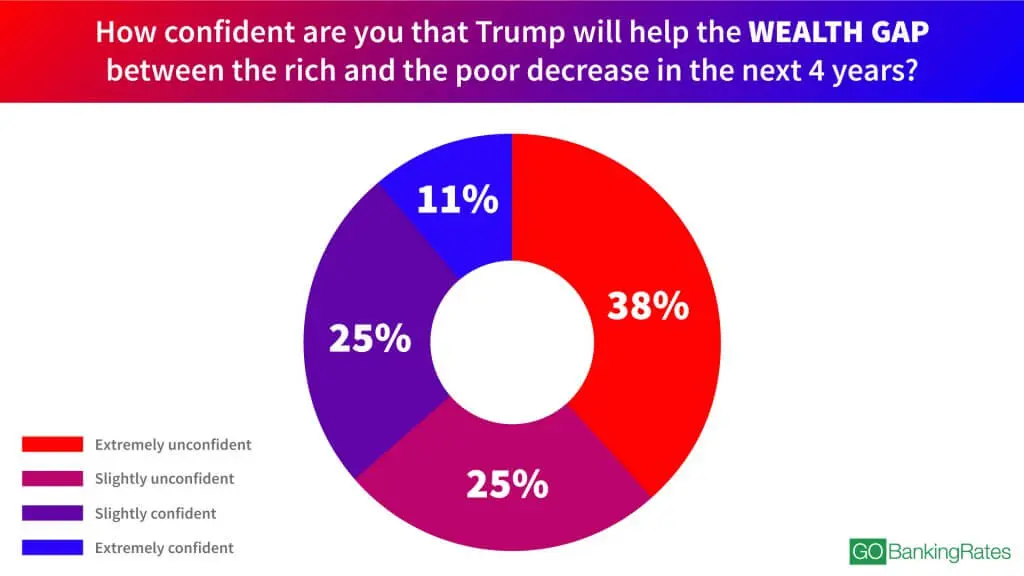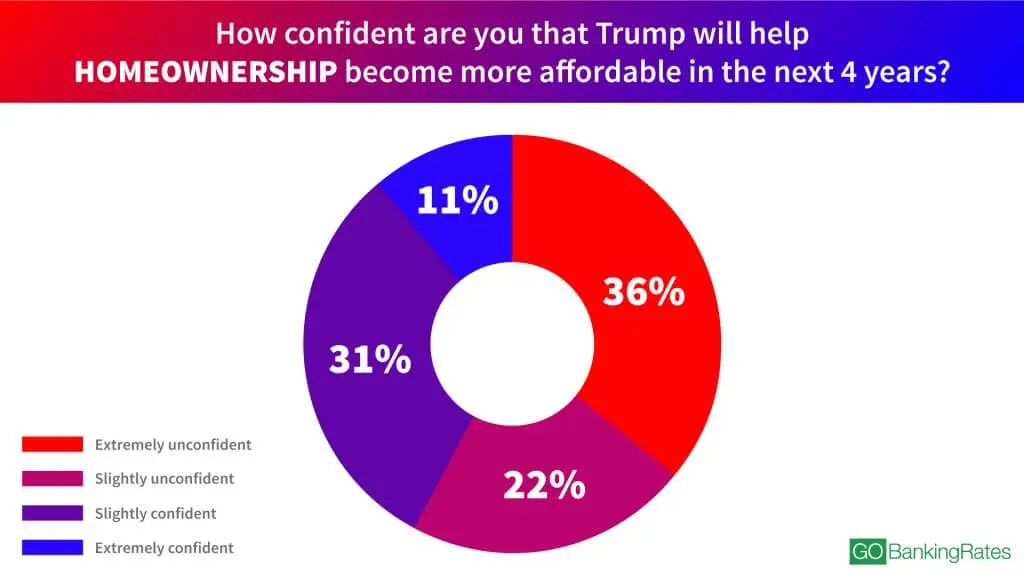How Confident Are Americans in the Country’s Financial Future?

Commitment to Our Readers
GOBankingRates' editorial team is committed to bringing you unbiased reviews and information. We use data-driven methodologies to evaluate financial products and services - our reviews and ratings are not influenced by advertisers. You can read more about our editorial guidelines and our products and services review methodology.

20 Years
Helping You Live Richer

Reviewed
by Experts

Trusted by
Millions of Readers
2016 may well go down in U.S. history as one of the most politically contentious. Since before President-elect Donald Trump won the election in November, GOBankingRates.com has been measuring Americans’ confidence in the economy going into the next presidential administration.
We surveyed more than 1,000 people before the election and found they were not confident about the financial future of the U.S. A short time later, just after the election, we conducted the same survey and found respondents were similarly not confident about the economy under a Trump presidency.
On the cusp of Inauguration Day, we again asked survey respondents four questions:
- How confident are you that Trump will help the unemployment rate continue to decrease in the next four years?
- How confident are you that Trump will help employee wages increase in the next four years?
- How confident are you that Trump will help the wealth gap between the rich and the poor decrease in the next four years?
- How confident are you that Trump will help homeownership become more affordable in the next four years?
Overall, slightly more than a third of the respondents remained “extremely unconfident” about the future. However, in three out of four questions, between 42 percent and 45 percent of respondents showed some confidence in the economy moving forward. Here’s a breakdown of the survey results.
Find Out: President Donald Trump’s Net Worth

Will the Unemployment Rate Continue to Decrease in the Next 4 Years?
Most respondents said they were either “extremely unconfident” or “slightly confident” that the unemployment rate will continue to drop under Trump, and these two factions were somewhat equally divided: 35 percent were extremely unconfident compared to 30 percent who were somewhat confident, a difference of just 5 percent.
Only respondents 65 and older were overall more confident than unconfident. Meanwhile, those making the most and least amount of money expressed a shared lack of confidence in the next four years. Here’s where respondents fell:
- 35 percent said they were “extremely unconfident” that unemployment will continue to go down.
- 30 percent said they were “slightly confident.”
- 21 percent said they were “slightly unconfident.”
- 15 percent said they were “extremely confident.”
See: The No. 1 Cause of Financial Stress in Every State

Will Trump Help Employee Wages Increase in the Next 4 Years?
Americans are overwhelmingly concerned with money. A GOBankingRates survey found that saving more and spending less was the No. 1 financial resolution for 2017, and 1 in 4 Americans say cost of living is their primary money concern.
Yet, survey respondents making $24,999 or less were more confident than unconfident that wages will increase under Trump’s presidency. But, 57 percent of those earning between $50,000 and $74,999 said they were either extremely or slightly unconfident. Notably, younger respondents were less confident overall than older respondents that wages would increase.
- 36 percent said they were “extremely unconfident” that wages will increase in the next four years.
- 31 percent said they were “slightly confident.”
- 19 percent said they were “slightly unconfident.”
- 14 percent said they were “extremely confident.”
Will Trump Help Close the Wealth Gap in the Next 4 Years?
Wealth inequality relates to an unbalanced distribution of assets in a population. It was a driving force behind the Occupy Wall Street protests starting in 2011 and was a topic visited throughout the presidential election. In our survey, 38 percent of respondents said they were extremely unconfident that Trump could close the wage gap. Another 25 percent said they were slightly unconfident.
Those age 55 or older were more confident than younger respondents, and the lowest income group expressed the most optimism that the wealth gap will shrink under Trump.
- 38 percent said they were “extremely unconfident” that Trump can shrink the wealth gap.
- 25 percent said they were “slightly confident.”
- 25 percent said they were “slightly unconfident.”
- 11 percent said they were “extremely confident.”
Will Trump Help Homeownership Become More Affordable in the Next 4 Years?
Owning a home is the American dream, and in some states, it is cheaper to own a home than rent one. But can President Trump help more Americans afford a down payment and mortgage costs? U.S. consumer confidence does not appear to be high.
More than half of respondents — 58 percent — reported feeling either extremely unconfident or slightly unconfident, with 42 percent expressing some hope under the new president. Those 65 or older expressed the most confidence. Meanwhile, those making $100,000 or more per year were the least confident. Here’s how the responses broke down:
- 36 percent said they were “extremely unconfident” that homeownership would become more affordable.
- 31 percent said they were “slightly confident.”
- 22 percent said they were “slightly unconfident.”
- 11 percent said they were “extremely confident.”
Many Americans Are Unconfident About the Financial Future of the U.S.
The U.S. is on the eve of a new presidency, and people may well have different opinions next month, when Trump and his policies take root in the Oval Office. For now, Americans are uncertain about the future of the economy.
Though older survey respondents are, overall, more positive about unemployment, wages, the wealth gap and homeownership, younger groups are more wary going into the new presidency. Only time will tell whether their fears will be abated over the next four years.
Next Up: States Most and Least Likely to Live Paycheck to Paycheck
Methodology: This GOBankingRates.com survey asked 107 respondents to answer the following questions with “extremely confident,” “slightly confident,” “slightly unconfident” and “extremely unconfident”:
- How confident are you that Trump will help the unemployment rate continue to decrease in the next 4 years?
- How confident are you that Trump will help employee wages increase in the next 4 years?
- How confident are you that Trump will help the wealth gap between the rich and the poor decrease in the next 4 years?
- How confident are you that Trump will help homeownership become more affordable in the next 4 years?
Respondents were also asked, “What is your annual household income?” and were given the following choices:
- $0-$24,999
- $25,000-$49,999
- $50,000-$74,999
- $75,000-$99,999
- $100,000-$149,999
- $150,000+
Responses were collected through a Survata survey conducted from Jan. 9, 2017, and responses are representative of the U.S. online population. The survey has a 3.1 percent margin of error.
 Written by
Written by 



























